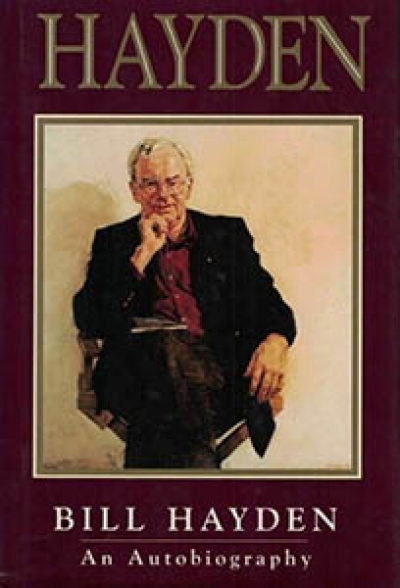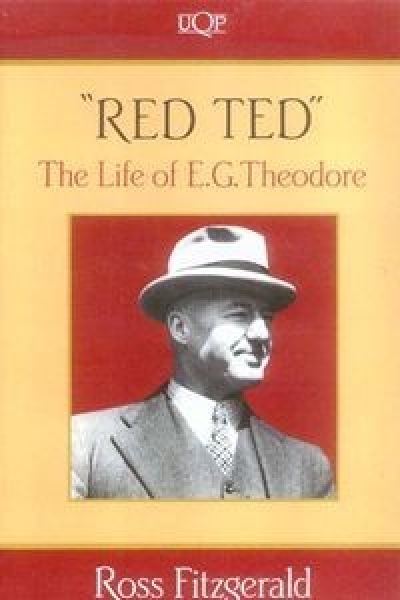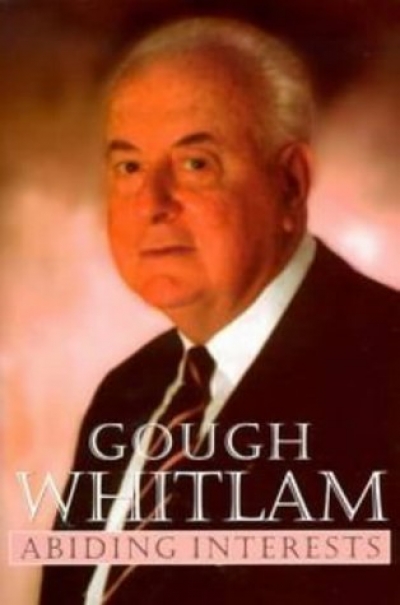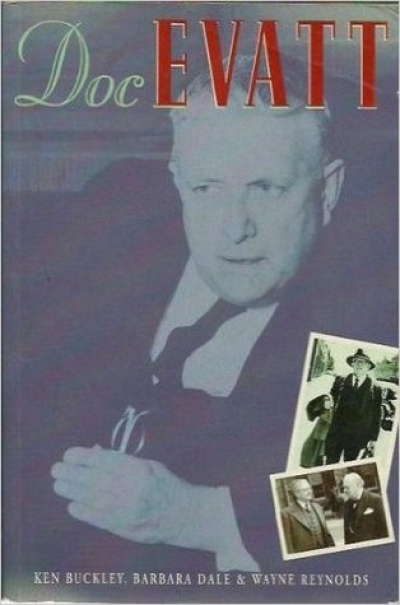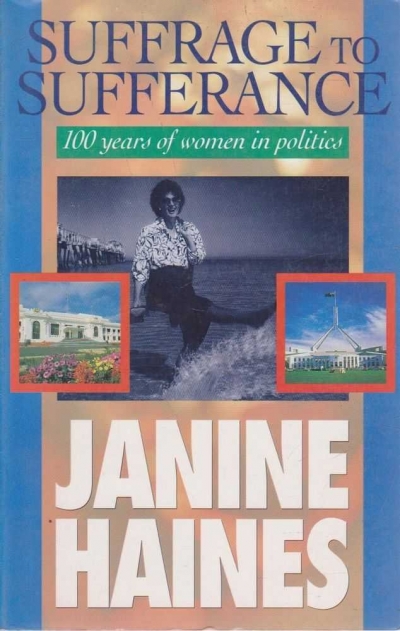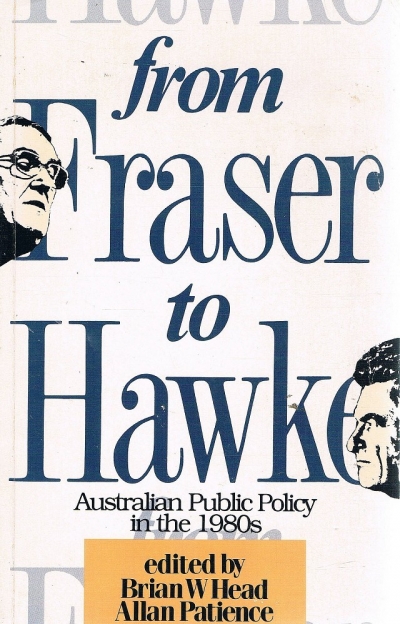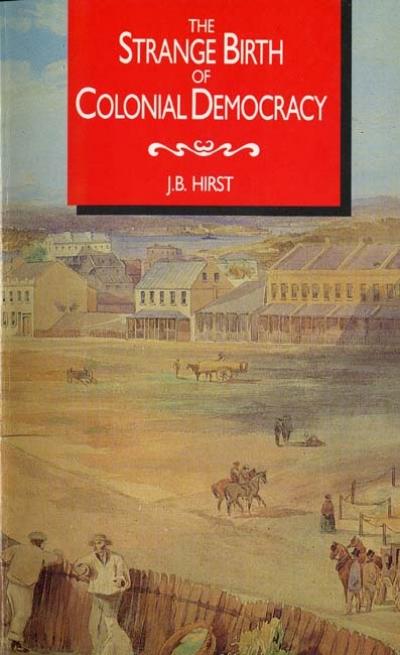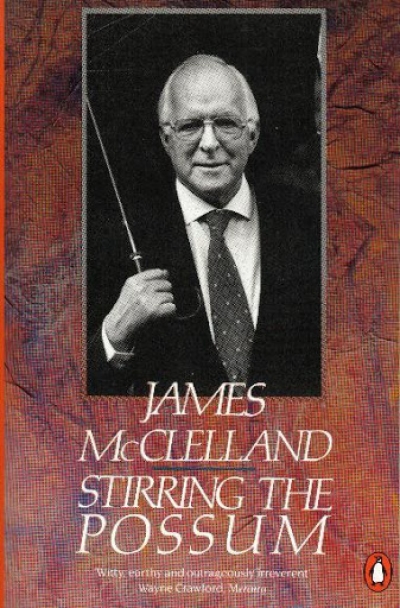Politics
Hayden: An autobiography is a fine book – one of the best political memoirs written by an Australian. It’s also a valuable historical work by a former politician who, thank God, doesn’t take himself too seriously.
Bill Hayden clearly made good use of his time as governor–general (1989–96) to undertake extensive research. In the acknowledgments section, the author gives generous thanks to librarians and archivists who assisted his endeavours. But it is clear that much of the detailed work was undertaken by Hayden himself.
... (read more)'Red Ted': The Life of E.G. Theodore by Ross Fitzgerald
On the day of the last Federal election, I became engaged in an unlikely conversation with a helper for the ‘Call-to-Australia’ cause at my local polling booth. When I revealed that I had recently completed a research project on Dr H.V. Evatt, my elderly companion asserted that Evatt should not be hailed as the hero of the labour movement. Australia’s greatest politician, this former member of the Australian Labor Party informed me, was ‘Edward Granville Theodore’.
... (read more)Part guru, part factoid, Gough Whitlam shows every sign of enjoying his retirement from politics. Thanks primarily to Sir John Kerr, Sir Garfield Barwick, and Sir Anthony Mason. And of course, Malcolm Fraser.
... (read more)Doc Evatt: Patriot, Internationalist, Fighter and Scholar by Ken Buckley, Barbara Dale and Wayne Reynolds
In his foreword to Doc Evatt, Jim Hagan claims that this is the fourth full-length biography of Dr. H.V. Evatt and suggests that only one other Australian politician has scored as many. Leaving aside the fact that Allan Dalziel never pretended that his book, Evatt the Enigma, was anything more than a profile of the man he worked with for twenty years, these assertions create the misleading impression that a substantial body of literature on Evatt exists. Academics have long lamented the lack of a comprehensive and scholarly biography of one of Australia’s most important and complex judicial and political figures. The very recent appearance of Peter Crockett’s Evatt: A life, characterised by wide-ranging research but a crude psychoanalytical approach, chronic disorganisation, a weakness in the analysis of international affairs, and a lack of historical perspective, disappointed in many ways.
... (read more)In October 1993 I picked up a copy of Window, the ‘Weekly Hong Kong Newsmagazine with Exclusive Coverage of China’ and found in the Business and Finance section a Profile, ‘Bob Hawke’s Eagle Eye in Asia’. There was a photograph of the Eagle, who described himself as a ‘business commentator and facilitator of increased enmeshment in Asia’. This was certainly a confident label. Reading on I discovered that Hawke saw himself as ‘overwhelmingly responsible for the vision of Australia as part of Asia’. He told the reporter than in his first days as Prime Minister he had used the phrase, ‘our future lies in enmeshment with Asia’, a sentiment that was at first greeted sceptically, but now, Hawke claimed, ‘no one questions the wisdom and correctness of Hawke’s vision. No one.’ Emphatic stuff, claiming sole credit for long term shifts in opinion and cultural practice, while dismissing the doubters. If that was all there was to my theme, this would be a very brief history indeed.
... (read more)Suffrage to Sufferance: 100 years of women in politics by Janine Haines
Janine Haines’s book, Suffrage to Sufferance is a good read. For women who are in public life and who insist on equality, it is a realistic and often humorous read. For those women who aspire to public life or simply equal rights, it is an entertaining – lost journalistic – account of where women’s aspirations might lead them. For men who understand or want to understand women’s drive for equality, there is an idea of the barriers, seen and unseen, that women face. And there is some sense of women’s struggle for political influence and recognition.
... (read more)Ross Fitzgerald reviews 'Billy Snedden: An unlikely Liberal' by Billy Mackie Snedden and M. Bernie Schedvin
Neither a conventional biography nor an autobiography, Billy Snedden is a story told in two quite distinct and authentic voices. There is that of the late Sir Billy Snedden, Liberal Party leader from 1972 to 1975, and Dr Bernie Schedvin, lecturer in politics at La Trobe University.
... (read more)From Fraser to Hawke by Brian Head and Allan Patience & The Hawke–Keating Hijack by Dean Jaensch
The debate about the costs and limitations of power is as old as the ALP, but it has been given new urgency by the changes in the Party since Labor won government in 1983. So far this year, three books have been published which deal wholly or in part with the Hawke government’s relationship with the traditions of the Australian Labor Party: Carol Johnson’s The Labor Legacy, Graham Maddox’s The Hawke Government and Labor Tradition and now Dean Jaensch’s The Hawke–Keating Hijack: The ALP in transition.
... (read more)In some ways, John Hirst presents his tale of colonial New South Wales as if it were a book for today. In the preface he comments: ‘But why should we care what it was like? – because in many fundamentals this is the political world we still inhabit.’ This theme is sketched and hinted at several times in the text but it is never argued in a systematic and rigorous manner. What are we to make of the claim?
... (read more)It seems strange to describe Diamond Jim McClelland as, really, rather an old-fashioned man. Few septuagenarians have anything like his energy, his forthrightness, his optimism, or, most of all, his receptivity to new ideas. But if there is a continuous thread in his extraordinarily full and complex life, it can probably be best summed up as a very untrendy, passionate commitment to morality. The catch is that his ideas of what constitutes morality – or at least what is the best way of achieving it – have gone from here to there and back again.
... (read more)

